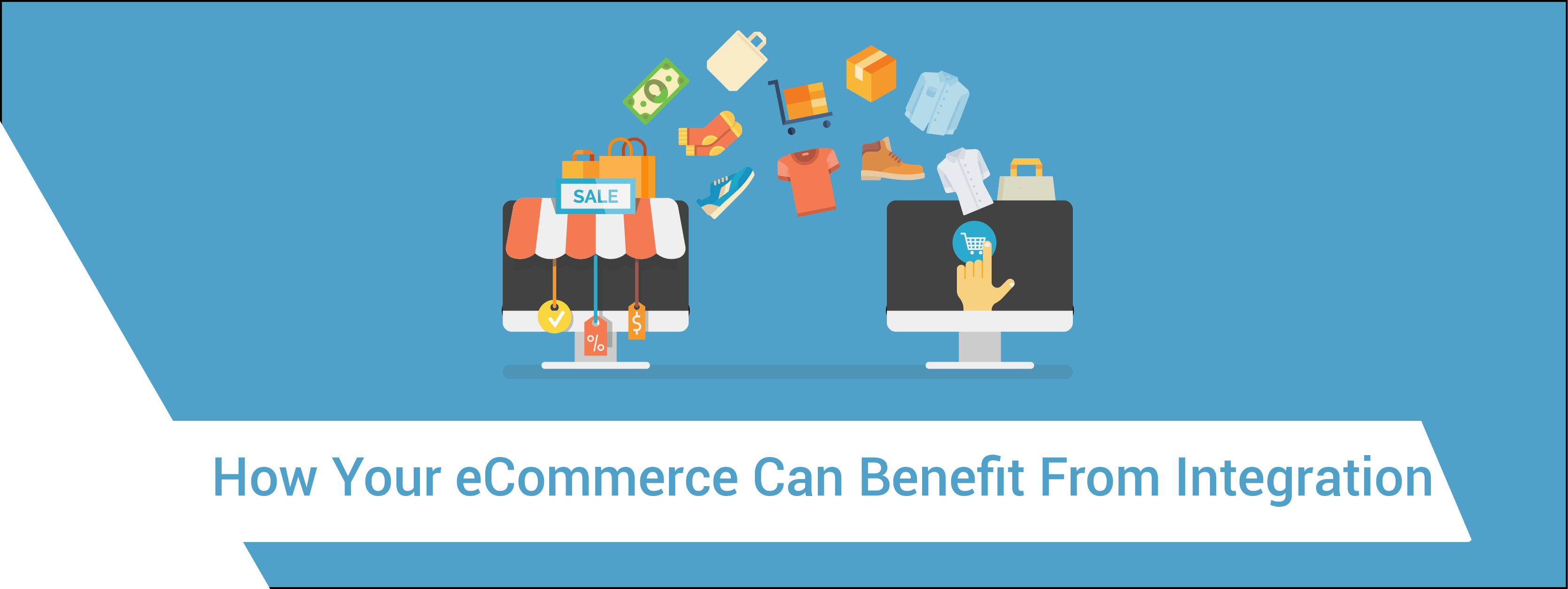
When the term eCommerce first appeared, it was viewed as a game-changer. It was said to revolutionize the world of commerce –and it did.
Can you imagine not being able to buy goods and services online? Well, very few people can.
As it continues to gain popularity around the world, eCommerce has proved to be a true game-changer in how consumers and retailers buy and sell their products and services.
eCommerce provides a platform for the exchange of goods and services via electronic systems using the internet as its backbone.
Some of the common factors that have contributed to e-commerce growth include private sales, mobile commerce, and group buying.
You may think that an eCommerce business is the surest way to succeed. But what was a trend a few years ago is now a huge, cutthroat industry. eCommerce is insanely competitive. Businesses in this industry have to innovate constantly or die.
This is where technology and integration come into play.
E-commerce integration synchronizes the back-end accounting, and inventory commonly referred to as ERP with your eCommerce site.
Proper integration provides a bi-directional platform for two or more systems.
You will only need to enter data once, and it will be integrated across the platforms. More importantly, the integration of two or more systems provides eCommerce businesses with insights into customer behavior patterns, lead generation and lead nurturing must-haves and more.
Let’s take a look at some of the benefits of app integration for eCommerce.
Data integration on an eCommerce platform is beneficial to the business and its consumers. Through integration, an eCommerce business is able to save time and the costs associated with storing, managing, and retrieving data.
You only need to enter data into the system once, and it is synchronized across all platforms. In case of any updates, you do not have to make changes on every platform.
Even more, consumers prefer up-to-date information about the status of their orders and products in or out of stock. Integration provides an effective way of keeping everyone in the loop about stock changes, promotions, special offers, discounts, and shipping.
Consumers can also track their orders via email notifications, calls, texts, and shipping carriers.
It is essential for businesses to adopt seamless integration for successful transactions. This approach enables orders processing from a single platform.
It is a smooth transition that saves time and cost for both the business and customers. You can complete the transaction process online without accessing the physical shop.
Integration provisions such as Volusion to Constant Contact enable organizations to save time, resources, and money. They make it easy to sync information with the target markets on both platforms.
You will only need a few resources and very little expertise to make changes in a central system. You can also control data accessibility by your employees from a central point rather than being dependent on one individual.
User experience is an essential consideration for buyers before completing the purchasing process. Consumers always seek easy access and navigation across your website.
Integration will make it easy for users to navigate from your website to the web store. It is common for potential buyers to exit a website for an alternative option because of a slow network or page loading. An integrated CMS will provide consumer satisfaction by offering a seamless experience.
Manual processes often result in several human errors such as double data entry and duplication. Integration incorporates automation aspects into your business. In such cases, companies also should consider integrating customs clearance solutions to simplify goods-related processes.
It makes it easy to minimize errors as it gives you control over the system. For example, a correction on one platform will be updated across the entire synced platform saving you money and time.
Your website design will influence a consumer’s perception of your brand. Most companies opt for integration options that allow quick custom design change depending on their needs.
The built-in CMS is a common option because it provides freedom to alter your web design. This means that you can custom-design your website and web store for a specific content targeting your market.
A well-integrated system is accurate and reliable. It makes it easy for your sales team to sell products to consumers because they understand the system and products offered. Accurate lead generation and lead nurturing insights will improve the overall productivity, customer experience, and business growth.
Many businesses are reaping great benefits after integrating their eCommerce solution to their various back-end systems. Want to learn more about how your eCommerce can benefit from integrations? Talk to our experts and find out today!